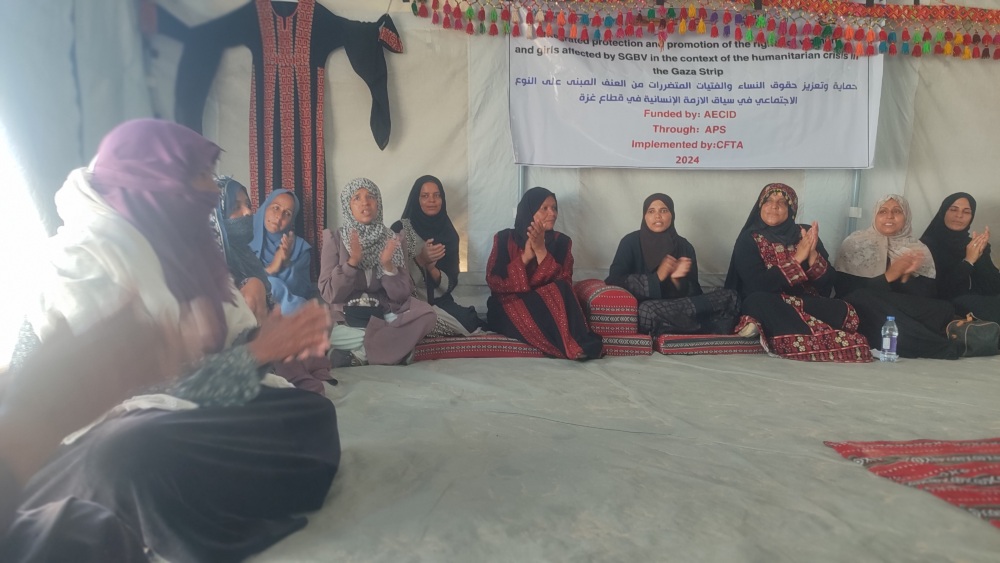
On the invasion’s 20th anniversary, the US must grapple with the fundamental question of what it owes the people of Iraq.
by Diana Duarte, Director of Policy and Strategic Engagement, and Yifat Susskind, Executive Director
published by Inkstick
March 21, 2023
by Diana Duarte, Director of Policy and Strategic Engagement, and Yifat Susskind, Executive Director
published by Inkstick
Twenty years ago, the United States invaded Iraq. The intervention was based on lies, opposed by millions of people worldwide, and violated international law.
The consequences of that catastrophic decision are impossible to fully document, although many have valiantly tried to tally the lives lost, the communities ripped apart, and the hopes for real democracy and peace dashed. Yet, amidst all that, one fact remains indisputable: the US invasion spelled disaster for Iraqi women. It obliterated protections for their rights and gender justice that they are still struggling to attain.
Early on in the invasion, the Bush administration made common cause with religious fundamentalists, empowering them in the new government. The United States acquiesced to their demands to erode pre-existing legal protections for women’s rights. Meanwhile, women became the targets of a wave of attacks and killings perpetrated by militias often associated with powerful figures in the US-sponsored Iraqi government. This violence was deliberate, designed to impose a rigid, gendered control system by retaliating against women who violated its rules through such transgressions as working outside of the home or speaking out for their human rights.
To this day, women in Iraq continue to suffer the consequences of the reactionary governance system that the United States promoted. For instance, a draft domestic violence law introduced in 2014 remains blocked by Iraqi policymakers who claim it would “erode Iraq’s social fabric.” The United States helped establish the precedent for tolerating domestic violence. In 2004, Iraqi women’s groups recognized that under the Hague and Geneva Conventions, the US occupying power had a legal obligation to protect Iraqi civilians, including from domestic violence. They demanded laws that would uphold their rights and criminalize domestic violence. These demands were ignored, as the United States instead chose to side with religious fundamentalists, effectively trading away women’s rights for “stability” in the post-invasion context.
These connections are rarely made in the media or policymaking circles within the United States, despite the fact that Iraqi women live in a world shaped by these realities. This is all the more galling when you consider that the liberation of Iraqi women was routinely trotted out as a rationale for the war on Iraq and the broader “war on terror.” Laura Bush shared what would become a common refrain among US policymakers when she proclaimed, “The fight against terrorism is also a fight for the rights and dignity of women.”
“The rights and dignity of women” are a worthy foreign policy objective. So are the aims of defending human rights and advancing democracy. But these goals are imperiled, not protected, by the default to military force and occupation. Twenty years after the US invasion of Iraq, we must do much more to ensure US policymakers learn this lesson. We can start by asserting that a more feminist foreign policy does much more than protect only women. By insisting on judging policy according to criteria that upend patriarchal norms — valuing non-violence over aggression and diplomacy over domination — we put ourselves on a path toward policies that protect and care for everyone. This transformation is crucial to avert future disasters like the US war on Iraq.
THE PROBLEMATIC BINARY OF US FOREIGN POLICY
Today, US foreign policymaking discussions are consumed with what to do about crises like the Russian war on Ukraine or China’s actions against Taiwan, the region, and internal dissidents. Unfortunately, these discussions, which project concern over human rights, immediately fall into a trap, doomed by the narrow set of options currently allowed under our militarized foreign policy: should we go to war or simply threaten military action?
If we have any hope of avoiding repeating the abysmal failures and horrific consequences of the US attack on Iraq, US foreign policymakers need to reject this blinkered binary and expand their set of policy options. They need to embrace a different set of prescriptions that emerge from an anti-militarist, pro-peace feminist foreign policy.
Evidence has already shown that the key to confronting authoritarian governments in a sustainable way lies in the hands of a non-violent feminist civil society. Research by Erica Chenoweth and Maria Stephan revealed that nonviolent movements are twice as effective at achieving their goals as violent uprisings, succeeding more than 50% of the time. Another study concluded that mass mobilizations are more likely to be peaceful when women play leading roles. Iraqi feminist organizers, long before the US invasion, were working to promote democracy and their rights, even under Saddam Hussein’s dictatorship.
The experience of Iraq reveals that military intervention and the use of force sabotage the efforts of these feminist, pro-democracy leaders and organizations. They become forced to contend with the gender-based violence that routinely accompanies war, and that escalates when their rights become subject to political horse-trading. What’s more, when a foreign military power that threatens their homeland then co-opts their language of women’s rights and democracy, local feminists can be tarnished as collaborators and internal enemies. This undermines their popular mobilizing power and their legitimacy as grassroots voices for peace and democracy.
The Biden administration would like nothing more than to put Iraq in the rearview mirror. They’re ready to move on to other world-altering projects: forget the “war on terror” now that “great power competition” has come to town. But we cannot just move on. For one, the policy architecture for the “war on terror” persists and continues to fuel destructive actions in the name of security. The 2002 Authorization for Use of Military Force (AUMF) that enabled the invasion of Iraq has been on the books for two decades, although there has been progress to repeal it, including through bills moving forward as we write this. Nonetheless, Secretary of Defense General Lloyd Austin visited Iraq just days ago, saying that US troops were “ready to remain in Iraq,” perhaps assured by the fact that the much broader 2001 AUMF persists, justifying violent action by the United States military in counterterrorism operations in Iraq and worldwide.
What’s more, the United States has never grappled with the fundamental question of what we owe the people of Iraq. A just, feminist foreign policy is rooted in accountability. It embraces non-violent solidarity, building channels of consultation with people who are directly impacted by US policy, especially local feminist civil society leaders. When we have done an immeasurable wrong, we must offer repair. To do so, we must decolonize our thinking enough to open space for Iraqis to shape what healing and accountability must look like.
ADVOCATES, GOVERNMENT DISCUSS APARTHEID ACCOUNTABILITY STATEGY
View DetailsIn uncertain times, think like a mother
View DetailsA Year of Holding Hope through Grief
View DetailsYOUR SUPPORT IN ACTION
Evershot



